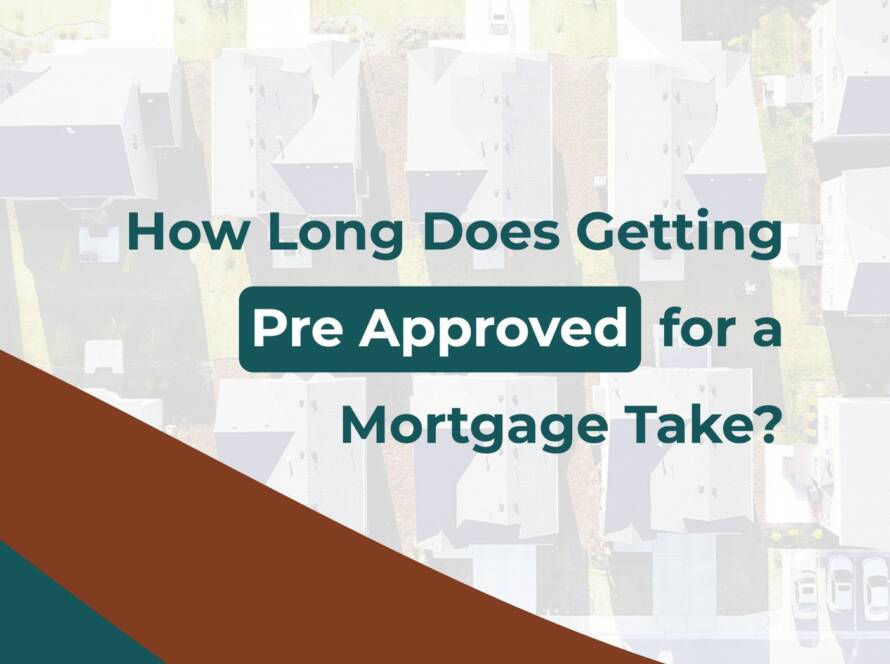Getting a mortgage pre-approval is a crucial step in the home-buying process, but not all applications are approved. Understanding why pre-approvals get denied helps you prepare and improve your chances of success. Common reasons include low credit scores, high debt-to-income ratios, unstable employment, and insufficient documentation. Addressing these issues before applying can save time and frustration while putting you in a stronger financial position.
Lenders evaluate multiple financial factors to determine if you qualify for a mortgage pre-approval. If any red flags appear during the review, your application may be delayed or denied. Fortunately, many of these obstacles can be resolved with proper planning and financial adjustments. This guide explores the top reasons for denial and actionable steps to avoid them.

1. Low Credit Score
A low credit score is one of the most common reasons mortgage pre-approvals get denied. Lenders use credit scores to assess risk, and a score below 620 may disqualify you from conventional loans. Government-backed loans (FHA, VA) have minimum credit requirements, typically around 580. Lenders may view you as a high-risk borrower without a strong credit history.
Credit score denials often stem from late payments, high credit card balances, or collection accounts. Missed payments and maxed-out credit cards significantly lower your score and raise concerns for lenders. Bankruptcy or foreclosure within the past few years can also lead to an automatic denial. Reviewing your credit report before applying helps identify these issues early.

How to Improve Your Credit Score Before Applying for a Mortgage Pre-Approval
Paying down credit card balances below 30% of your limit can quickly boost your score. Setting up automatic payments ensures you never miss due dates, improving payment history over time. Disputing errors on your credit report, such as incorrect late payments, also helps. Avoid opening new credit accounts before applying, as hard inquiries temporarily lower your score.
Building credit takes time, but small changes make a difference within months. Becoming an authorized user on a family member’s credit card can help if you have limited credit history. Secured credit cards are another option for rebuilding credit responsibly. If your score is borderline, waiting a few months to improve it may lead to better loan terms.
2. High Debt-to-Income Ratio (DTI)
Lenders analyze your debt-to-income ratio (DTI) to determine if you can afford a mortgage payment. A DTI above 43% often results in denial, as it suggests financial strain. This ratio compares your monthly debt payments (credit cards, student loans, car payments) to your gross income. Even with good credit, excessive debt can disqualify you from approval.
High DTI ratios frequently occur when borrowers carry large credit card balances or auto loans. Co-signed loans and personal loans also count toward your total debt obligations. Lenders want assurance that you can handle mortgage payments alongside existing debts. Calculating your DTI before applying helps you assess eligibility.
How to Lower Your DTI For Faster Mortgage Pre-Approval
Paying down credit card debt is the fastest way to improve your DTI ratio. Increasing your income through a side job or overtime can also help offset high debt levels. Avoiding new loans before applying prevents additional debt from affecting your ratio. Refinancing existing loans to lower monthly payments may also improve your DTI.
A larger down payment could reduce the mortgage amount needed if your ratio is slightly above the limit. Some lenders allow compensating factors, such as significant savings, to offset a high DTI. Working with a loan officer to explore alternative loan programs may provide more flexibility. Addressing debt early ensures a smoother pre-approval process.
3. Unstable Employment History
Lenders typically prefer borrowers with a steady, verifiable income source for at least two years. Frequent job changes or employment gaps raise concerns about income stability. To prove consistent earnings, self-employed applicants must provide additional documentation, such as tax returns. Without a reliable income history, lenders may hesitate to approve your application.
Part-time work, seasonal jobs, or recent career changes can also complicate pre-approval. Lenders typically require recent pay stubs and W-2s to confirm employment status. Those who recently switched to freelance or contract work may face stricter scrutiny. A lack of documented income is a common reason for denial.
How to Strengthen Your Employment History for Mortgage Pre-Approval
Staying with your current employer for at least six months before applying improves approval odds. Self-employed borrowers should prepare two years of tax returns and profit/loss statements. Avoid quitting or changing jobs during the mortgage process, as it may require re-verification. If you have employment gaps, a letter explaining the reason can help lenders understand your situation.
Seasonal workers may need to show consistent income across multiple years. Adding a co-borrower with stable employment can offset concerns about variable income. Lenders may accept bonuses, commissions, or overtime pay if documented over time. Demonstrating long-term income stability increases your chances of approval.

4. Insufficient Down Payment or Reserves
Some loan programs require a minimum down payment, typically 3%–20% of the home’s price. Without enough savings, your pre-approval may be denied or limited to certain loan types. Lenders also assess cash reserves to ensure you can cover emergencies after closing. A lack of savings signals financial risk, even with good credit and income.
Down payment requirements vary by loan type—FHA loans require as little as 3.5%, while jumbo loans may need 10%–20%. Gifts from family members are allowed but must be properly documented. Unexpected expenses, like recent large purchases, can deplete funds needed for closing. Planning ahead ensures you meet the financial requirements.
How to Save for a Down Payment and Reserves
Automating monthly savings into a dedicated account helps build funds faster. Down payment assistance programs, available in many areas, can reduce the amount needed upfront. Cutting discretionary spending, like dining out or subscriptions, frees up cash for savings. Selling unused assets or working a side job can also boost your down payment fund.
If you’re close to your goal, delaying your application by a few months may make a difference. Some lenders accept retirement account withdrawals (with penalties) as a last resort. Creating a strict budget ensures you don’t dip into savings before closing. The more you save, the better your loan terms and approval chances.

5. Errors or Inconsistencies in Documentation
Incomplete or incorrect paperwork is a leading cause of mortgage pre-approval delays and denials. Lenders require precise documentation of income, assets, employment, and debts. Discrepancies between your application and supporting documents raise red flags. Minor errors, like mismatched addresses or misspelled names, can trigger additional reviews.
Common documentation issues include unsigned forms, outdated bank statements, or missing tax returns. Self-employed borrowers often struggle to provide sufficient profit/loss records. Gaps in employment history without explanation may also lead to denial. Organizing documents before applying prevents unnecessary setbacks.
How to Ensure Accurate and Complete Documentation for Mortgage Pre-Approval
Request a checklist from your lender to verify all required documents upfront. Double-check that names, addresses, and Social Security numbers match across all forms. Providing signed tax returns (not just transcripts) avoids processing delays. If self-employed, work with an accountant to prepare financial statements early.
Keep digital and physical copies of all paperwork for easy access. Update recent pay stubs and bank statements shortly before applying. Disclose all financial accounts, even those with minimal balances, to prevent omissions. Reviewing everything with a loan officer beforehand minimizes errors.
Secure Your Mortgage Pre-Approval with Confidence
Understanding why pre-approvals are denied helps you address issues before applying. Improving your credit score, lowering debt, and organizing documents increases your chances of approval. Stable employment and sufficient savings further strengthen your application. Taking these steps positions you for a smoother homebuying journey.
Ready to get pre-approved with confidence? The Brown Team offers expert guidance to help you navigate the mortgage process successfully. Contact us today to start your application with a trusted lender.




